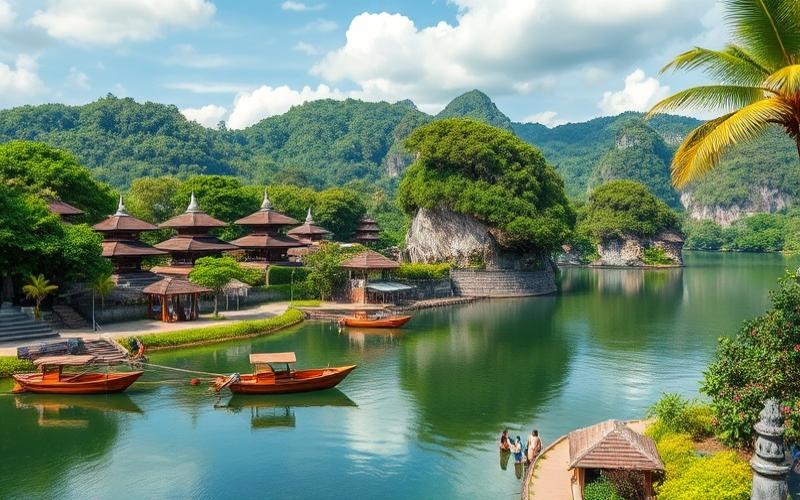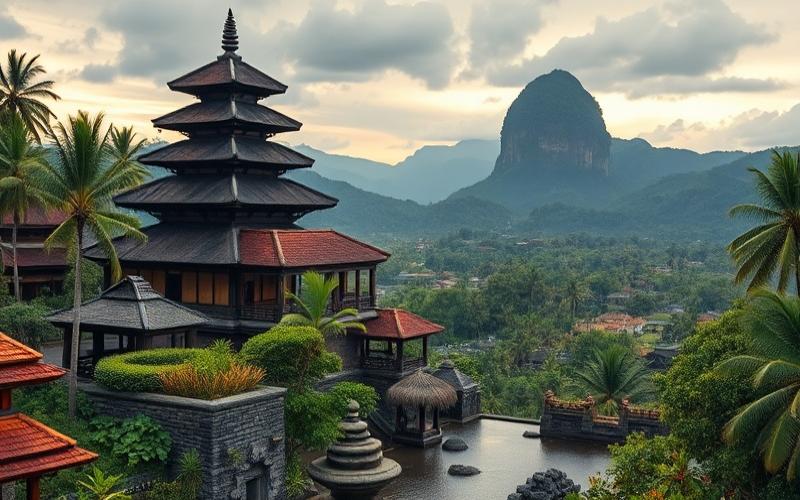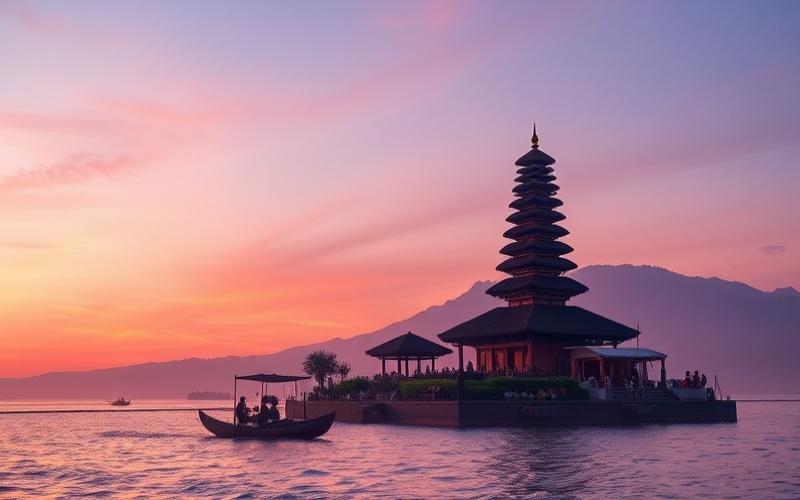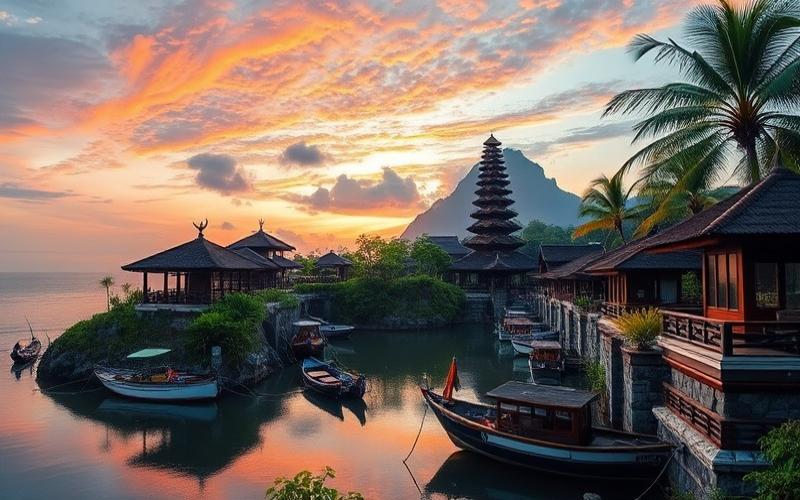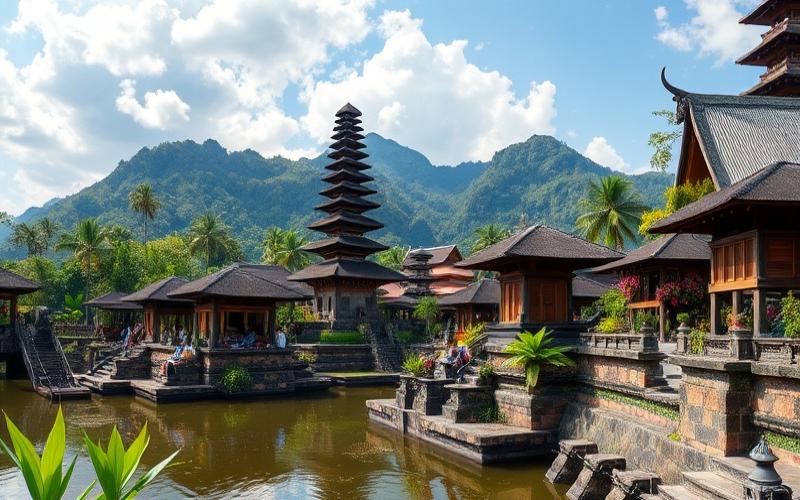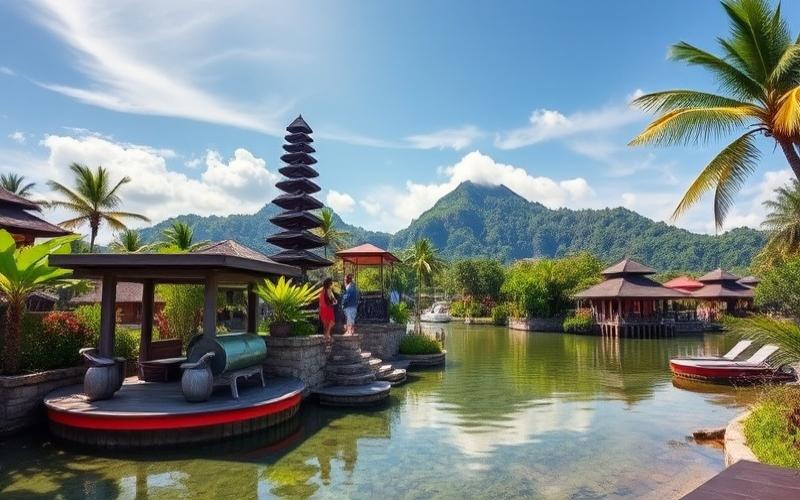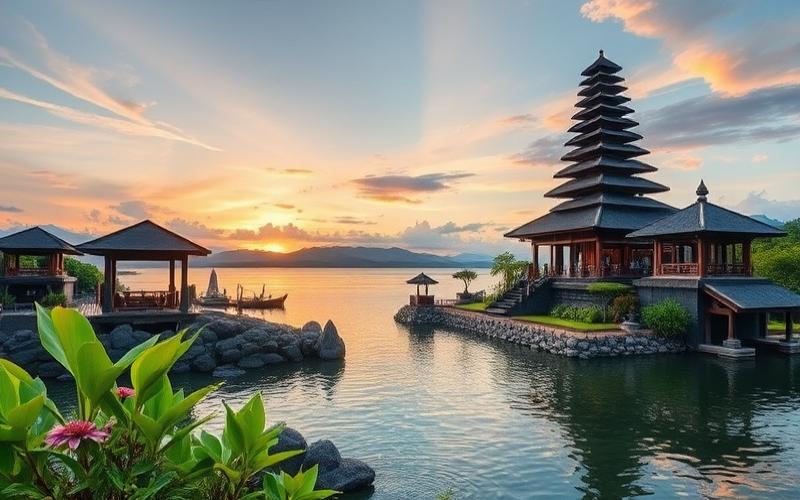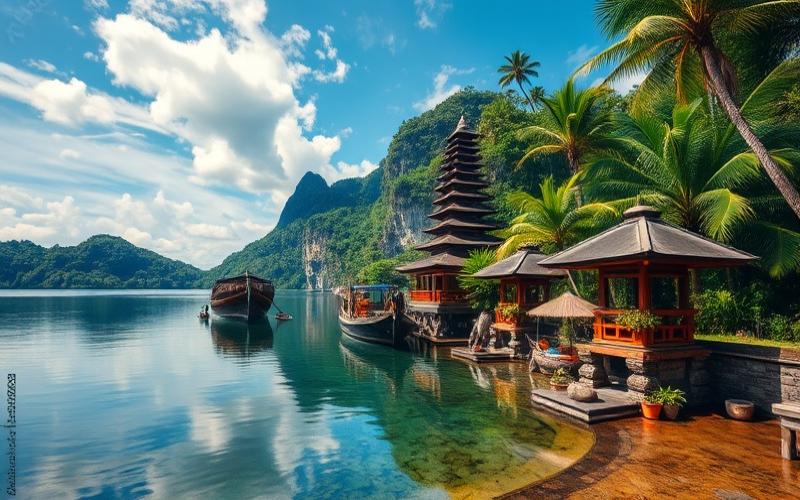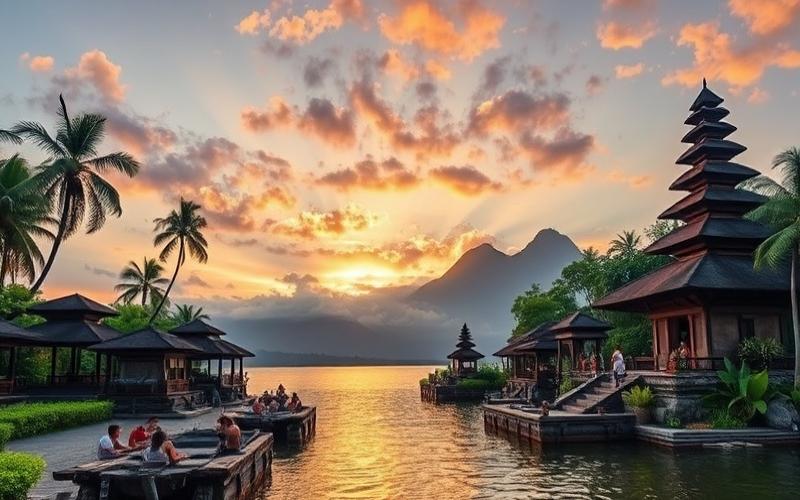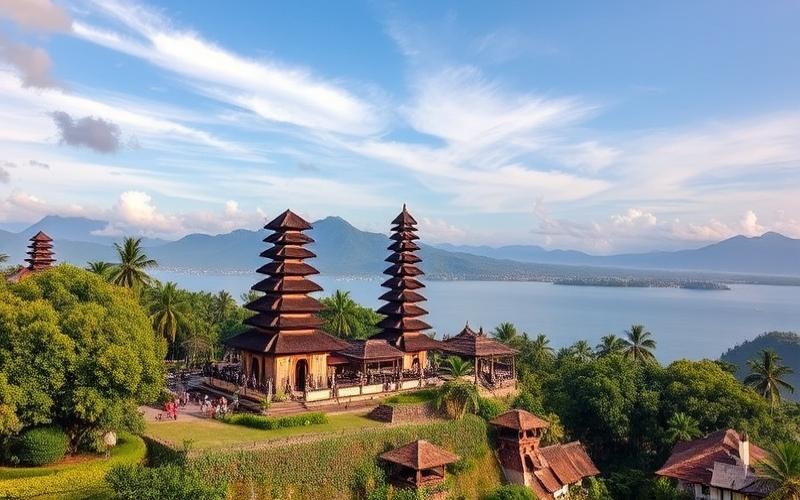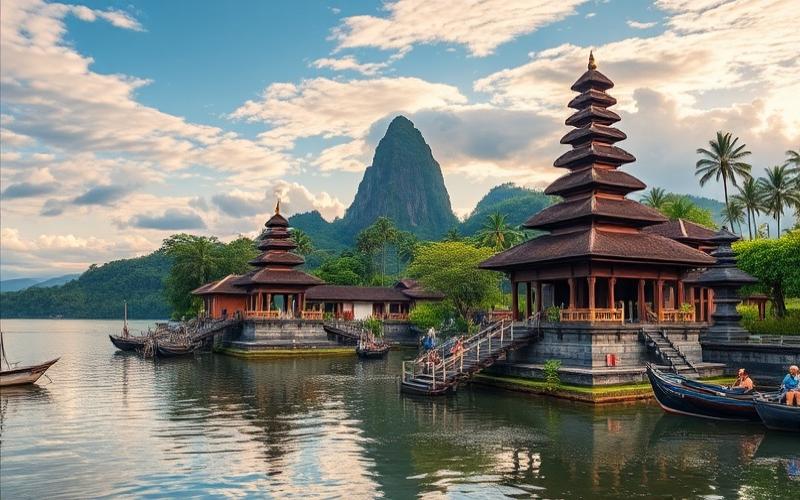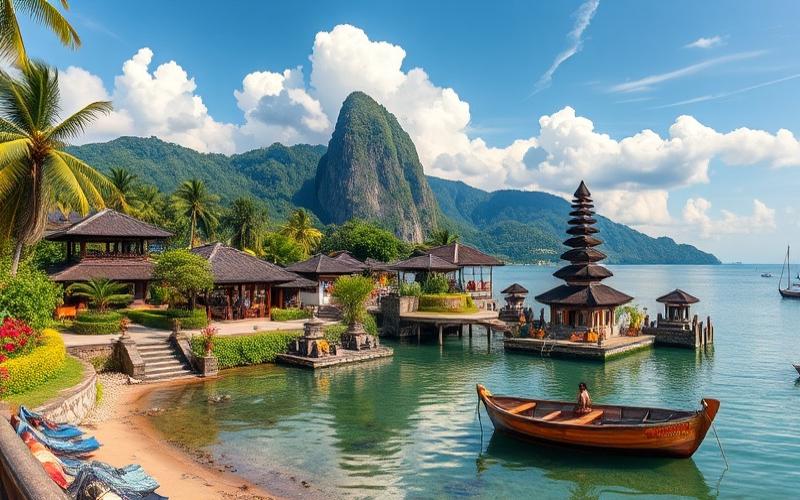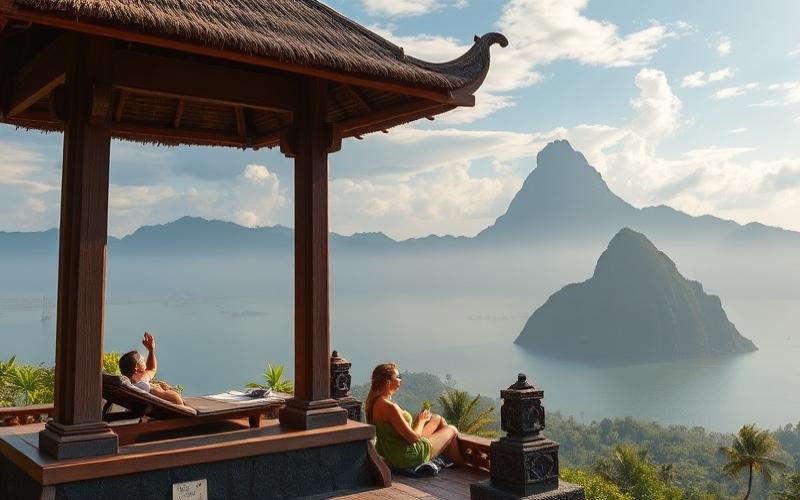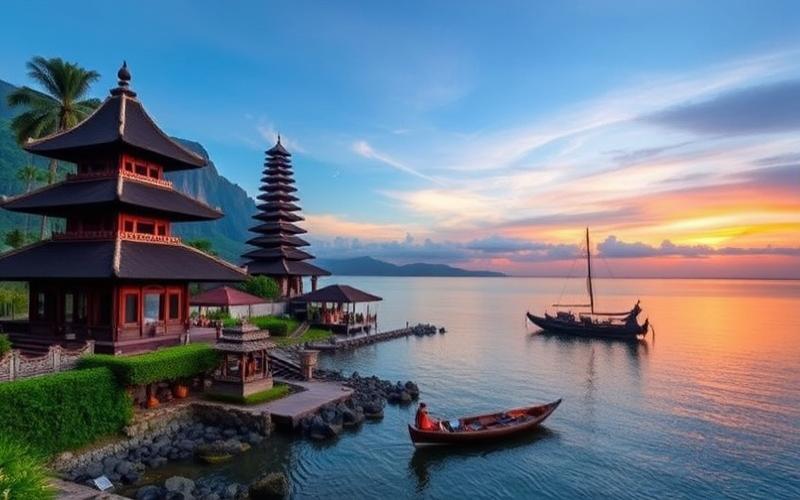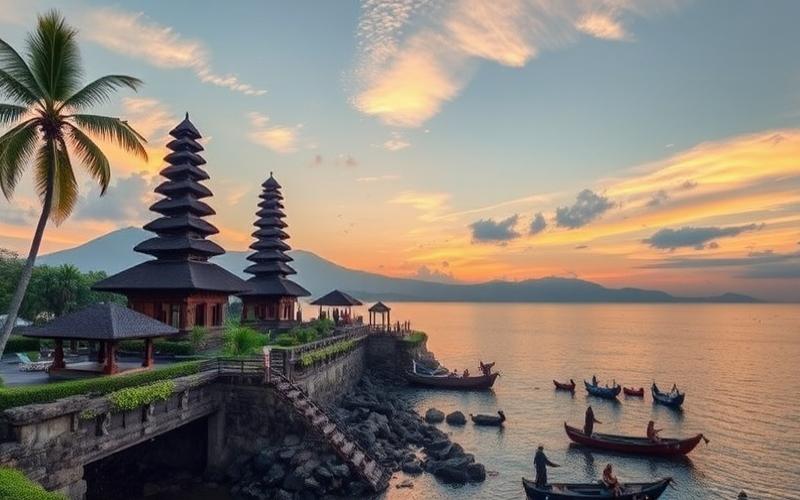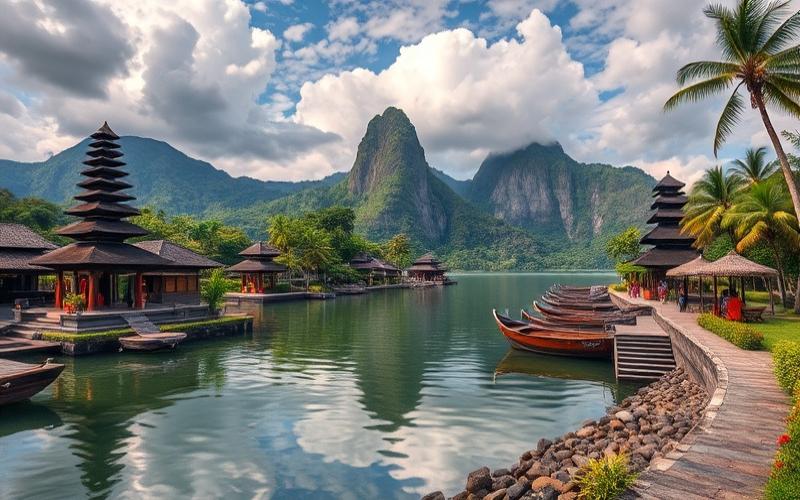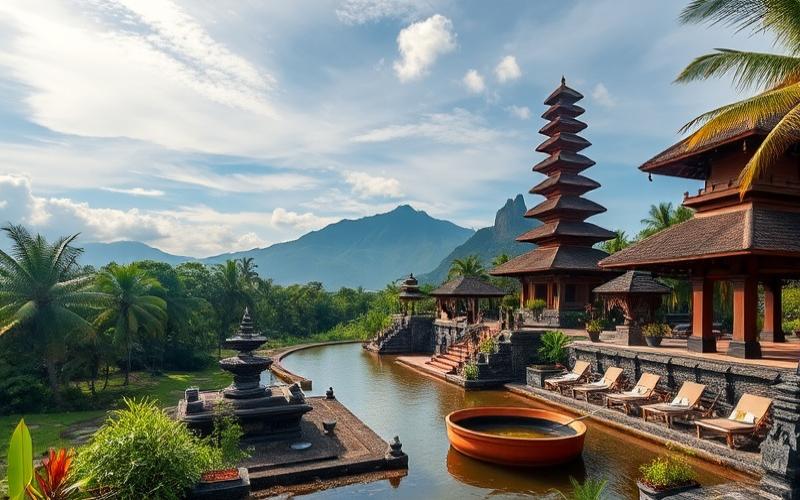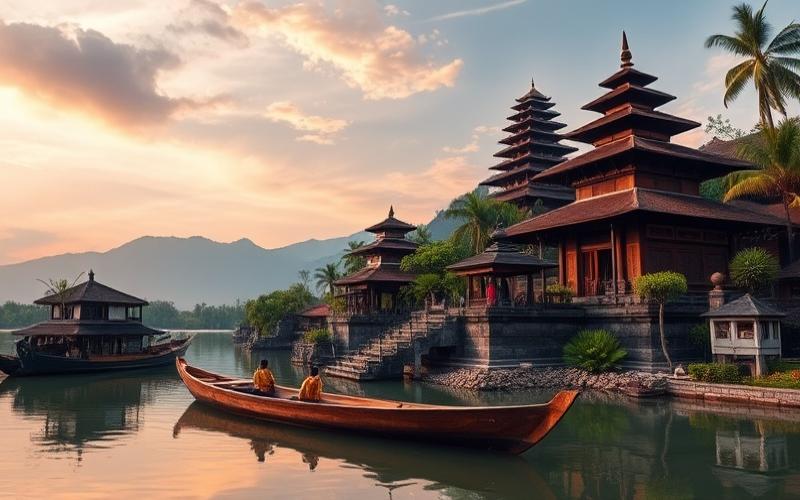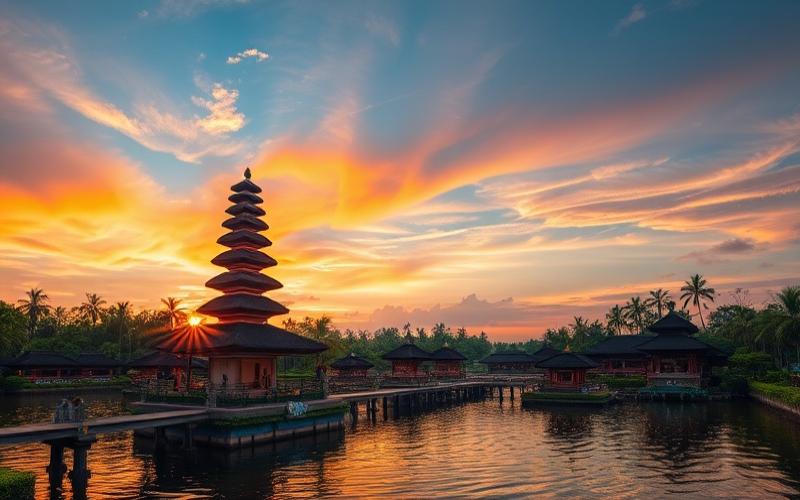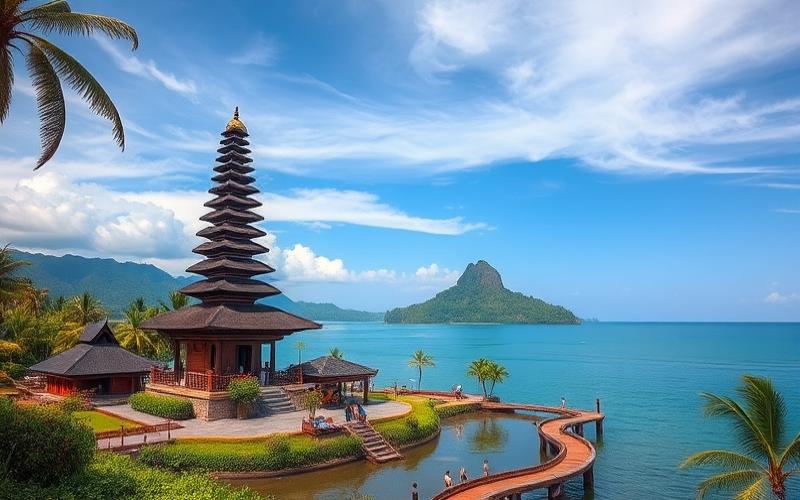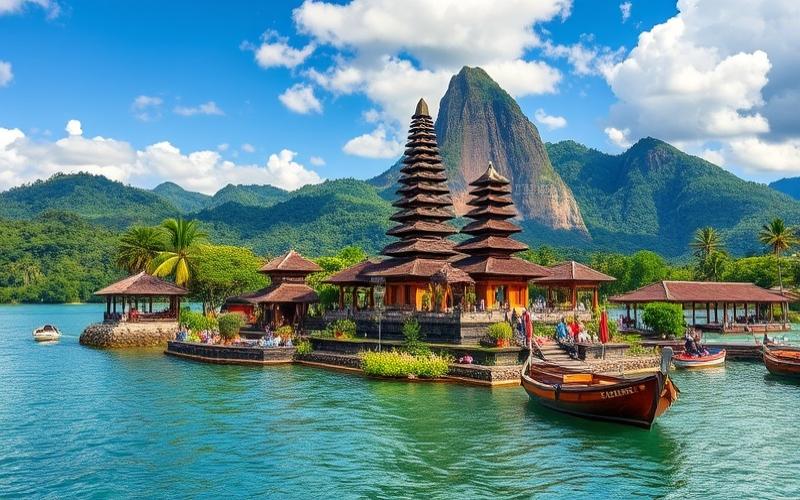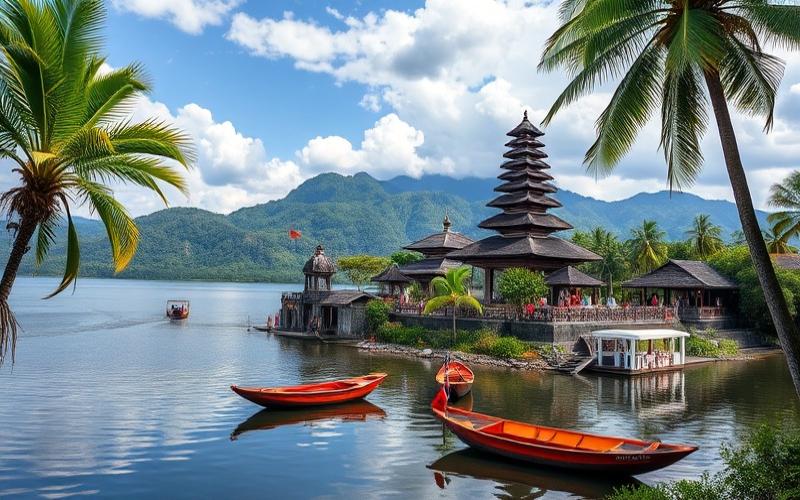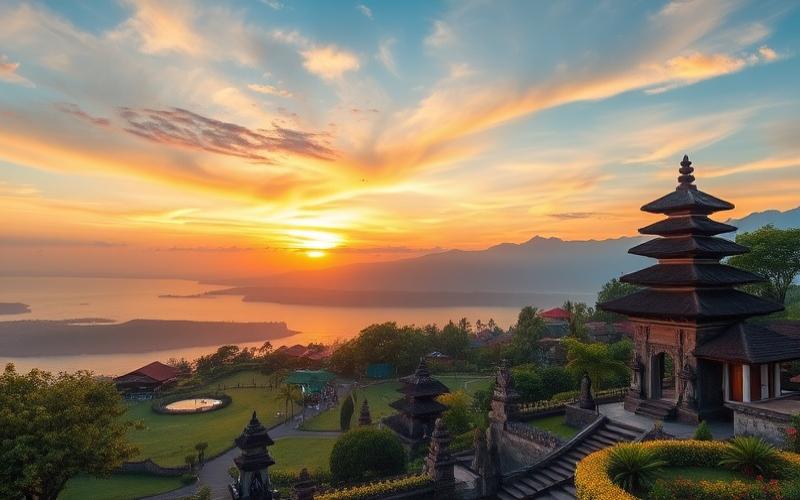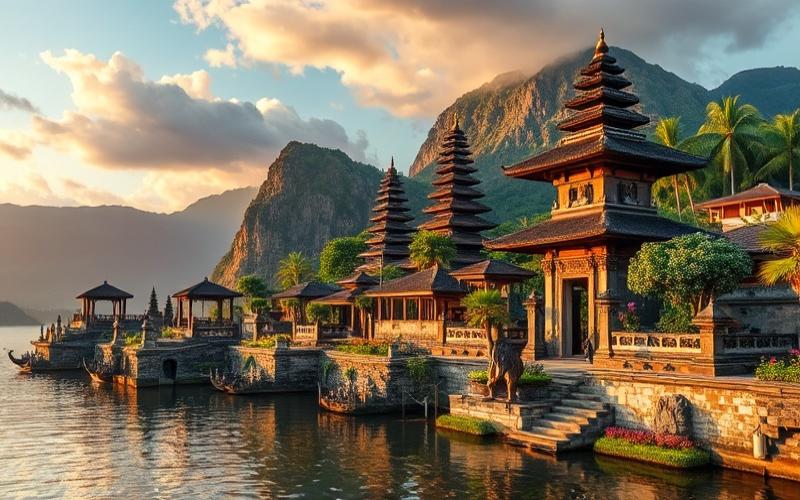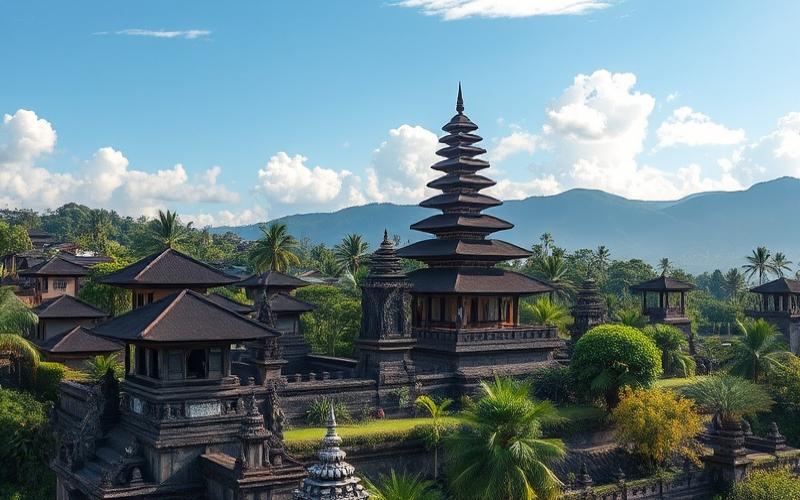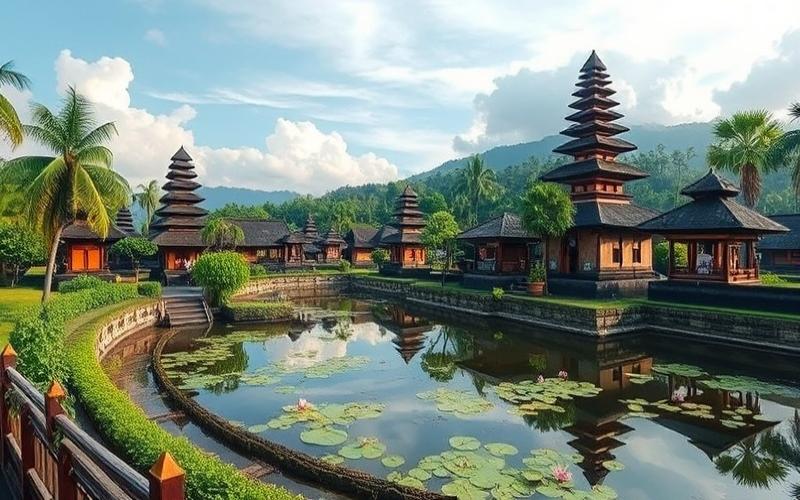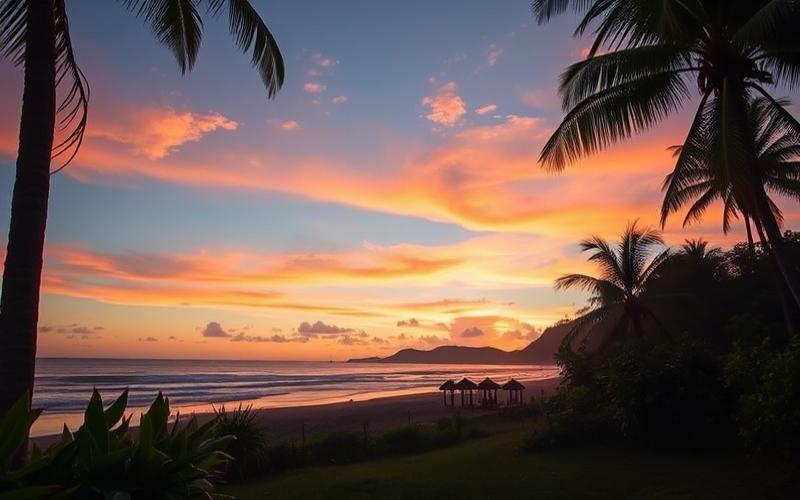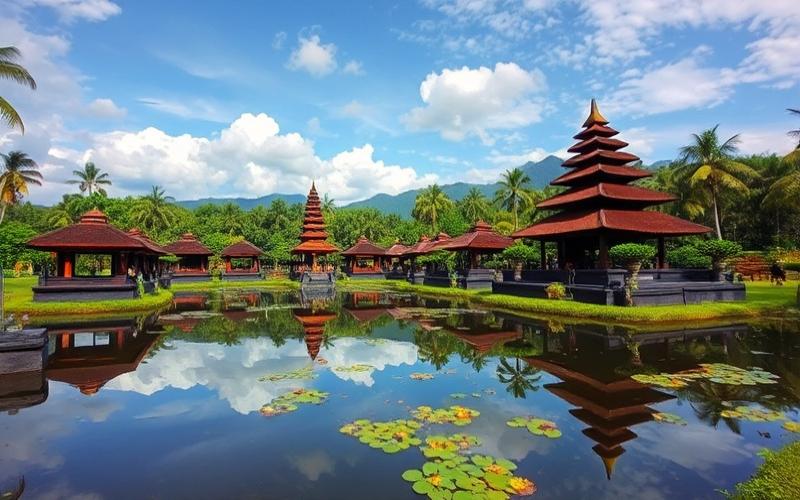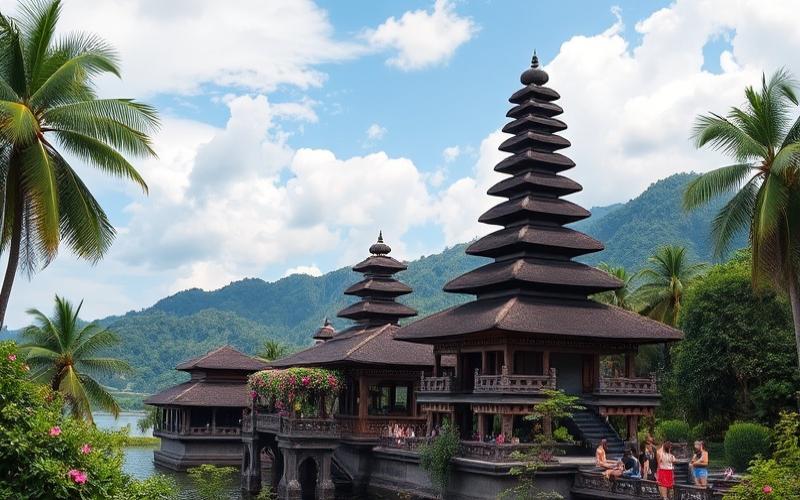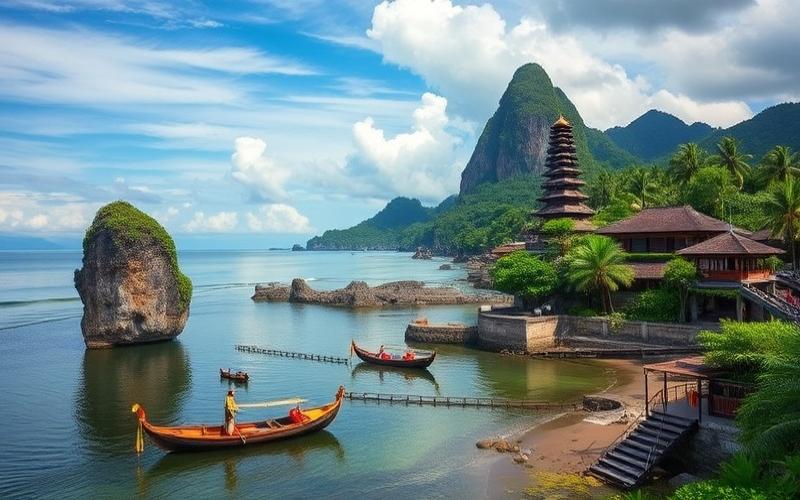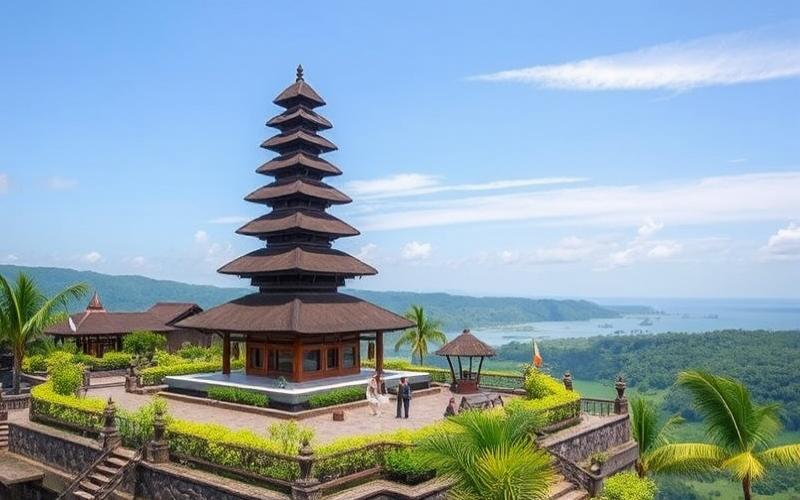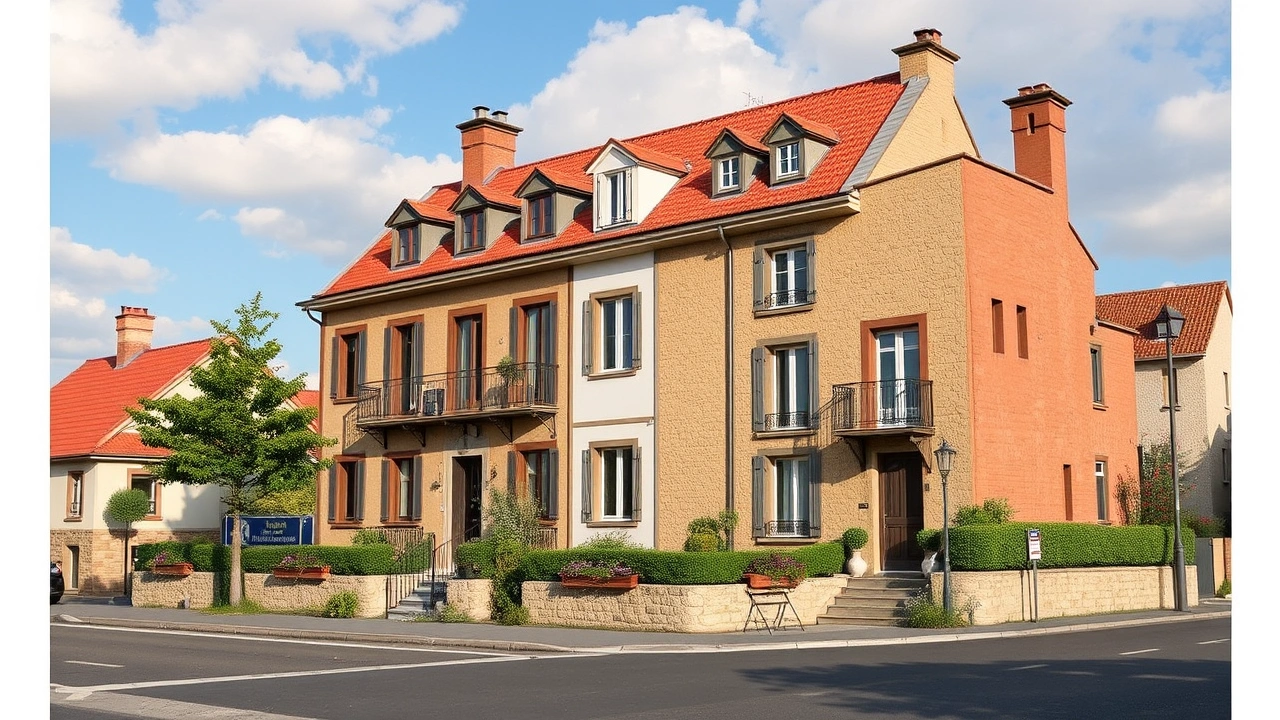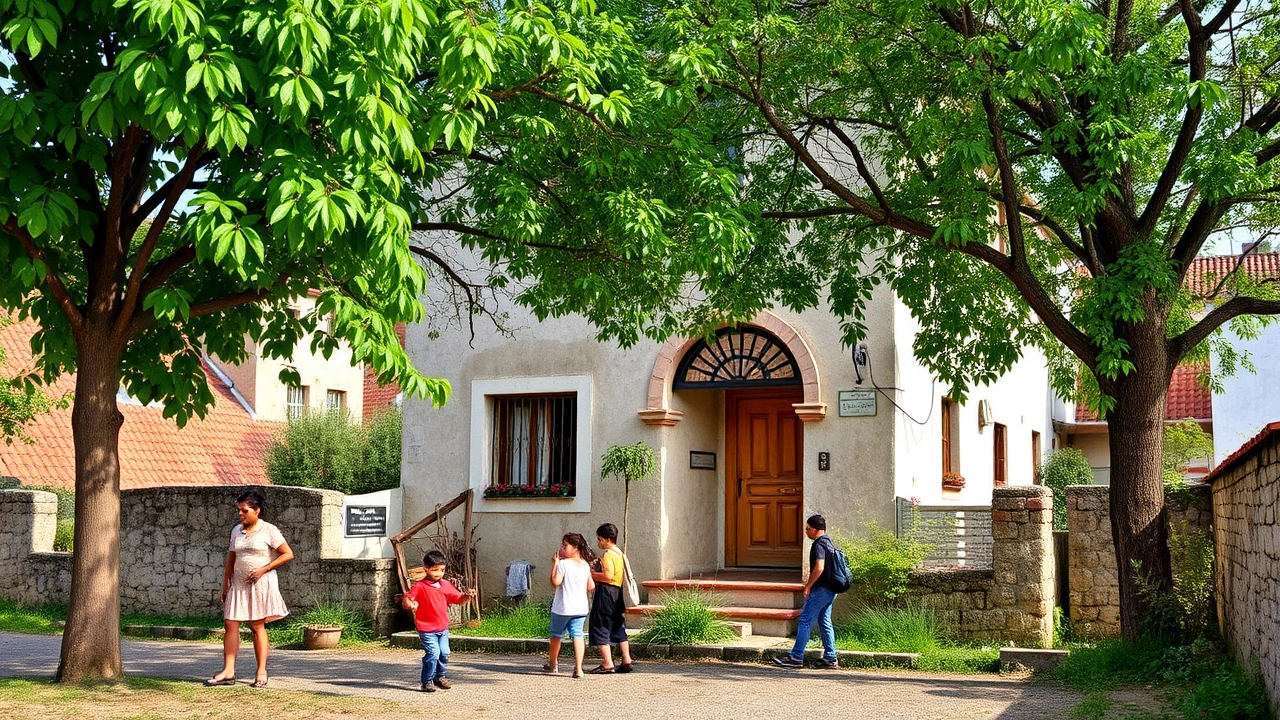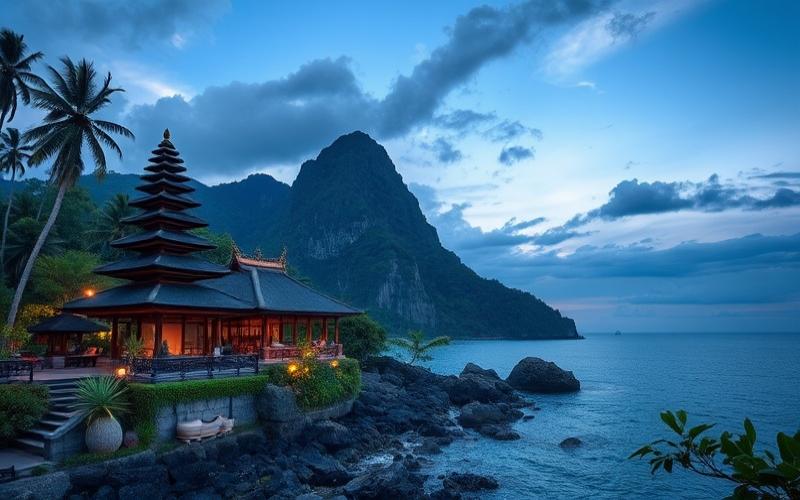
 Published on and written by Cyril Jarnias
Published on and written by Cyril Jarnias
Buying Agricultural Land in Bali
Buying agricultural land in Bali, this paradise island of Indonesia, can be an incredibly rewarding adventure but also a complex one, due to the numerous legal specificities related to land ownership.
This article aims to guide future buyers step by step through the maze of Indonesian regulations, highlighting essential aspects to consider, such as the different forms of ownership available to non-citizens, the mandatory checks to perform before any purchase, and tips to avoid common pitfalls.
Whether you are a seasoned investor or a nature lover eager to immerse yourself further in Balinese culture, familiarizing yourself with the ins and outs of the Indonesian legal system is a crucial step to ensure the success of your real estate project in this archipelago of countless attractions.
Buying Agricultural Land in Bali: Why Is It Strategic?
Purchasing agricultural land in Bali is seen as a strategic decision due to several economic, geographical, and political factors that enhance the island’s attractiveness to investors.
Economic Factors
- Sustained growth in the agricultural sector, driven by increasing demand for local and organic products in both domestic and export markets.
- Significant export opportunities thanks to the global reputation of Balinese products (rice, tropical fruits, spices), supported by easy access to international markets.
- Potential attractive returns, particularly through land appreciation linked to infrastructure development and tourist influx.
Geographical and Climatic Factors
- Particularly fertile soils in so-called “green” agricultural zones, suitable for a wide variety of tropical crops.
- Direct access to water and proximity to other farms fostering agricultural synergies.
- Stable tropical climate with two distinct seasons (dry/wet), enabling multiple possible harvests per year.
| Factor | Advantage for the Investor |
|---|---|
| Soil Fertility | Increased Productivity |
| Water Availability | Water Security |
| Climate | Multiple Harvests/Year |
Synergies Between Agriculture and Tourism
Bali’s tourism dynamism generates strong local demand for fresh products from short supply chains as well as for agritourism experiences (educational tours, rural stays).
Growing development of projects combining eco-responsible tourist accommodations integrated into the local agricultural landscape.
Favorable Government Policies
- Advantageous tax regimes: tax reductions or exemptions offered to foreign investors in certain strategic sectors like agriculture or rural development.
- Administrative simplification regarding landholding by foreigners through secure long-term leases or appropriate legal structures.
The Indonesian government regularly implements incentive policies aimed at attracting foreign direct investment in the agricultural sector. These measures include not only a competitive tax environment but also a simplified regulatory framework providing more security for investors.
In summary:
Buying agricultural land in Bali not only allows you to benefit from the economic potential linked to the rapid development of the local and international agri-food sector but also to fully exploit the complementarity with island tourism.
Good to Know:
Buying agricultural land in Bali is a strategic decision due to the dynamic growth of the agricultural sector, particularly stimulated by increased demand for local and organic products in both domestic and export markets. The island’s fertile geography and tropical climate favor a wide variety of crops, making the land extremely productive. Bali, a prime tourist destination, also presents opportunities in agritourism, allowing for synergies between agriculture and tourism. The Indonesian government encourages foreign investment through favorable policies, including tax incentives, to develop sustainable agriculture. This makes Bali an advantageous place to launch innovative agricultural activities that meet growing global expectations for sustainability and ecological responsibility.
Understanding Rural Zoning in Bali and Its Legal Implications
In Indonesia, and particularly in Bali, rural zoning is governed by several national, provincial, and local laws and regulations. The rules aim to organize land use to preserve agriculture, nature, and regulate urban or residential development.
Main Rural Zoning Designations in Bali
| Zone | Color | Permitted Use | Main Restrictions |
| Agricultural | Green | Agriculture, rice cultivation (sawah), etc. | Construction strictly prohibited |
| Conservation | Dark Green | Protected forests, ecological zones | Any construction prohibited |
| Residential | Yellow | Single-family homes/apartments | Non-agricultural use prohibited |
Applicable Laws and Regulations
- Law No. 26/2007 on Spatial Planning: national framework for spatial planning.
- Balinese provincial regulations (Perda) aligned with national guidelines but adapted to the local context.
- Regional Spatial Planning Master Plan (RTRW): defines specific zones in each territory.
Impact on the Purchase and Use of Agricultural Land
- Purchasing land in a green/agricultural zone only permits agricultural activities; any residential or commercial construction is illegal.
- Reclassifying agricultural land for residential use requires an official request to the local government. This process is lengthy and rarely approved as Bali seeks to preserve its cultivated spaces for economic and environmental reasons.
- Foreign investors cannot directly acquire a freehold title (“Hak Milik”) but can obtain a right of use (“Hak Pakai”), which remains conditional on compliance with zoning.
Legal Procedures for Zoning Change or Development Permits
- Submit a written application to the regional spatial planning office (Dinas Tata Ruang).
- Provide documents: cadastral plans, economic/social/environmental justification.
- Public consultation sometimes required depending on the project size.
- Technical evaluation by competent authorities: compliance with existing RTRW/RDTR.
- Final approval issued in the form of a written permit (“IMB”, now replaced by “PBG” – Permohonan Bangunan Gedung).
Legal Implications for Foreign Investors
Strict prohibition for any foreigner or foreign entity to own land outright in a rural/agricultural zone; only certain temporary or indirect forms are possible under strict conditions (emphyteutic lease / local company).
Any violation of the zoning code can lead to forced demolition without compensation or effective recourse.
Environmental Regulations Influencing Rural Zoning
Indonesian environmental laws particularly protect:
- Irrigated rice fields classified as world cultural heritage,
- Primary forests,
- Rivers/wetlands sensitive to flooding,
which drastically limits any possible changes in these sectors even after potential special permit acquisition.
Key Takeaway
Any acquisition or development in a rural zone in Bali must scrupulously respect the zone type defined in local plans; any attempt at illegal conversion exposes one to severe sanctions including outright cancellation of the project without possible financial compensation.
Good to Know:
In Bali, rural zoning is primarily governed by Law No. 26 of 2007 on Spatial Planning in Indonesia, which defines specific zones for agriculture, conservation, and residential development. These designations directly influence the purchase and use of agricultural land, limiting their development according to permitted local plans. For example, land classified as an agricultural zone cannot be used for residential projects without prior modification of the zoning status, a complex process requiring approval from local authorities and often a specific permit. Foreign investors must also navigate regulations that may include restrictions on direct ownership and often require the creation of specific legal structures like a local company (PT PMA). Indonesian environmental regulations, such as Law No. 32 of 2009 on Environmental Protection and Management, ensure ecological preservation, limiting activities likely to harm the environment, which can influence the costs and timelines of development projects.
How to Avoid the Pitfalls of Non-Buildable Land in Bali
In Bali, the regulation of non-buildable land is primarily based on urban and rural zoning defined by local authorities. The criteria that make land non-buildable include its classification as a “Green Zone,” agricultural zone, or any other designation prohibiting the erection of standard residential or commercial buildings.
Main Criteria for Non-Buildable Land in Bali:
- Classification in a green zone: prohibits any construction except infrastructure dedicated to environmental conservation (agricultural research, limited ecotourism).
- Agricultural zoning: sometimes only 20% of the land can be used for certain agriculture-related constructions, under strict conditions.
- Specific regional restrictions according to local cultural and environmental needs.
- Incompatibility with the local urban plan or absence of adequate permits.
Essential Checks Before Any Purchase:
- Consult the Dinas Pekerjaan Umum (public works department) and the local municipality to verify the exact classification of the land and the real possibilities for construction.
- Examine the official land certificate to ensure measurements are correct and the title is legitimate; have a new measurement done by an independent expert if necessary.
- Check with local institutions for the existence or possibility of obtaining a PBG permit (Persetujuan Bangunan Gedung, ex-IMB permit), a key document validating any construction project compliant with zoning.
Legal Implications in Case of Non-Compliance:
| Situation | Legal Risk | Potential Consequence |
|---|---|---|
| Construction without valid permit | Legal action | Heavy fine |
| Building in a prohibited zone | Demolition ordered by the state | Total loss of investment |
| Illegal possession by foreigner | Title nullity/expulsion | Financial loss |
Frequent Deception Cases Encountered by Foreign Buyers:
- Fraudulent sale of land classified as non-buildable presented as “ready to build”
- Falsification or partial absence of official documents
- Oral promises without legal value regarding an imminent zoning change
Solutions to Avoid These Pitfalls:
- Systematically hire a lawyer specialized in Indonesian land law who perfectly masters local regulations.
- Engage a competent notary who conducts thorough administrative checks.
- Obtain all official documents from authorities (zoning, land certificate, possible authorizations).
- Also solicit independent urban planning experts to technically assess future feasibility in accordance with Balinese environmental and cultural laws.
It is imperative to obtain all official written validations before any financial commitment to avoid any subsequent dispute or lengthy and costly legal proceedings.
Good to Know:
To avoid the pitfalls of non-buildable land in Bali, it is crucial to know the local regulations that classify land as non-buildable, usually due to environmental, cultural, or zoning restrictions. Before any purchase, verify the authenticity of the property certificate (SHM) and other documents with the National Land Agency (BPN), to avoid frequent cases of fraud particularly affecting foreign buyers. Hire a lawyer specialized in Indonesian land law to navigate the legal complexities and an urban planning expert to assess project feasibility in light of specific Balinese urban planning and cultural preservation rules. Consulting these professionals can help you comply with Balinese environmental laws and avoid investing in illegally marketed land, ensuring a secure and legitimate acquisition.
Steps to Obtain a Building Permit in a Balinese Rural Zone
The first essential step is to consult the local village or banjar. This approach allows obtaining practical advice on project feasibility, learning about cultural and regulatory specificities unique to the community, and avoiding any conflict with local traditions. Good relations with these bodies also facilitate the project’s integration into its rural environment.
Required Documents for Permit Application:
- Land ownership certificate (SHM or HGB)
- Detailed architectural plans (including structural and environmental studies)
- Agreement from the local banjar/village
- Proof of zoning compliance issued by the BPN (Badan Pertanahan Nasional)
- Identity proof of the owner or legal representative
- Environmental impact study if required based on location
Procedure with Competent Authorities:
| Step | Description |
|---|---|
| Document Preparation | Gather all necessary justifications |
| Consultation with Local Experts | Certified architect, civil engineer, environmental consultant to comply with standards |
| File Submission to Bupati Office | Submit complete file via SIMBG (Sistem Informasi Manajemen Bangunan Gedung) |
| Payment of Administrative Fees | Pay local fees set after preliminary validation |
| Verification & Inspection | Regulatory examination followed by a technical site visit |
Since the application of the Omnibus Law (UU Cipta Kerja), the IMB (*Izin Mendirikan Bangunan*) has been replaced by the PBG (*Persetujuan Bangunan Gedung*). Obtaining the PBG remains mandatory for any new construction. The application is now made online via the SIM-BG system; it is therefore crucial that each document is compliant to avoid rejection.
Additional Consultations:
For any project located in a Balinese rural zone, it is highly recommended to enlist a local expert specialized in environment or heritage to ensure perfect compliance with ecological and cultural restrictions specific to Balinese villages.
Typical Timeframes:
The time required for complete approval can vary from several weeks to a few months depending on the complexity of the file and local administrative workload.
In Case of Rejection or Modification Requests:
- Examine precisely the reasons stated by the administration.
- Quickly correct/complete missing documents.
- Recontact local authorities to submit a modified version.
Legal Implications if Steps Are Not Followed:
Any construction without a valid permit exposes its author to severe legal sanctions: forced demolition, heavy administrative fines, or even criminal prosecution. The total or partial absence of authorization also compromises any future real estate transaction related to the illegally built property.
Structured Summary:
- Consult banjar/village
- Prepare all required documents
- Collaborate with certified experts
- Submit complete file via SIM-BG to the competent administrative office
- Wait for inspection then official decision before launching construction
Good to Know:
To obtain a building permit in a Balinese rural zone, it is crucial to first consult the local village or banjar to understand the specific rules and customs to respect. Then, prepare the necessary documents, including property certificates and architect plans, to submit to the Bupati office. The procedure includes obtaining a PBG, essential for legal building. A local expert can help you navigate environmental and heritage constraints. The waiting time for a PBG can vary, generally around two to six months. In case of refusal or modification requests, you will need to revise your plans based on the feedback received and submit for a new review. Not rigorously following these steps can lead to legal sanctions and potential demolition of illegal constructions.
Disclaimer: The information provided on this website is for informational purposes only and does not constitute financial, legal, or professional advice. We encourage you to consult qualified experts before making any investment, real estate, or expatriation decisions. Although we strive to maintain up-to-date and accurate information, we do not guarantee the completeness, accuracy, or timeliness of the proposed content. As investment and expatriation involve risks, we disclaim any liability for potential losses or damages arising from the use of this site. Your use of this site confirms your acceptance of these terms and your understanding of the associated risks.

